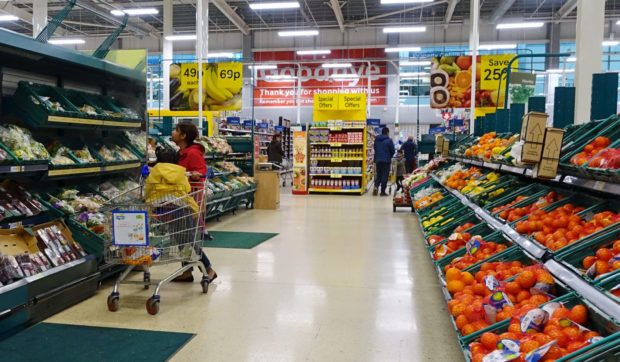The Covid-19 crisis has helped bring the public closer to UK farmers, and food security has become a much easier concept to understand.
The sector now needs to think about how it will maintain public engagement and continue to drive this message long after the end of the crisis.
The issue in recent weeks has not been about lack of supply, it has been dysfunctional supply chains. Produce normally sold 50% retail and 50% food services was switched overnight to 100% retail.
Whilst these are abnormal circumstances, there needs to be contingencies in place, and alternative models to the “just in time” supply chains the food sector has become reliant on.
The risks also need to be better shared, so that it is not all pushed down the line to the primary producer, as we are witnessing in the dairy sector.
Many farming businesses have diversified and, ironically, it is the retail, tourism and leisure parts that are being hardest hit right now. Indeed, the business models have been based on home-produced food, provenance, short supply chains and trust.
Whilst these businesses are feeling pain at the moment, hopefully there will be a bigger pool of consumers who have been educated on food supply on the other side, but perhaps more importantly a government that negotiates a good trade deal for agriculture with food security in mind.
The distraction of the pandemic has resulted in the government losing negotiating time on how the UK will withdraw from the European single market.
The UK has some of the highest welfare and environmental standards in the world and I hope, given recent events, these are not sacrificed in pursuit of quick trade deals.
Covid-19 and Brexit are going to be a reset for many businesses, and much will depend on what happens to subsidies and how farmers in the UK are incentivised going forward.
I am sure, given a choice, the majority of farmers would prefer not to be subsidised and instead be suitably rewarded by the market.
Whilst the market for farmers may be more valuable selling direct to consumers, ultimately farmers produce commodities and compete in a world market.
We therefore need to watch what our competitors around the world are doing as we do not want to be the only country not supporting our agricultural sector.
Maybe it is time for some blue sky thinking and switching subsidy towards research and development or connecting with consumers.
Engaging with the public has traditionally been thought about in terms of getting people on to farms through the likes of open days, but one thing the last few weeks has taught us is engagement can be achieved using technology too.
With all government decisions around Covid-19 being made based on science, the answers to some of the issues affecting the farming sector right now also rely on science.
Covid-19 and Brexit ought to accelerate the focus and investment in technology, as the more spent on R&D the more productive industry becomes.
We hear a lot just now about the R number. I would like to redefine R as a measure of resilience. Having spent my professional career as a chartered accountant dealing with farmers and rural businesses, one thing I have learned is these businesses have R in spades.
The longevity of these clients is greater than any other, so whatever is thrown at the rural sector in the coming months and years, I have no doubt it will innovate to survive and thrive.
Ian Craig is a partner with Campbell Dallas.










